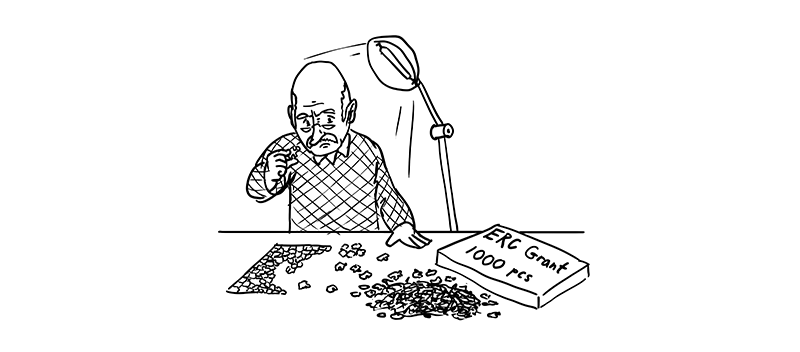A botched experiment, a rejected paper: such things are soon labelled as failures in academia. As for talking about them – not done! But that is just what WUR scientist do in this column. Because failure has its uses. This time, we hear from John van der Oost, professor of Microbiology.
‘Scientific research starts with an idea and the search for funding to test the idea. About eight years ago, I had an idea for a CRISPR-Cas project. I submitted an application for the ERC Advanced Grant, but it was rejected. As with other rejections, I felt miserable for a few days. I gave myself time to get over that unpleasant feeling, took a deep breath and looked at my proposal again with fresh eyes. Then I could see that it had been a rushed job. But I still believed in my plan.
A year later, I holed up at home for three weeks and started over. How could I improve on the proposal? A big project consists of components that fit together logically. That wasn’t the case in my original proposal: the components did not form a coherent whole.
For a rejected applicant, it’s important not to blame the committee
This time I linked them up better. I explained the strategy more clearly and I worked out what we should do if particular steps panned out in unexpected ways. I also streamlined the whole thing better and took the time for illustrations. After spending four weeks rewriting it, I submitted my revised proposal and this time my idea was rewarded with the grant.
That experience was a valuable lesson. It sounds obvious, but if you take enough time for a proposal, you’ll do justice to it. It makes it possible for the idea to ripen and for you to brainstorm with your colleagues. Of course, grant applications will always be challenging and being rejected can be very frustrating. For a rejected applicant, it’s important not to just blame the adjudicating committee by thinking: they didn’t understand it. That’s exactly when you need to shoulder the responsibility for formulating the proposal more clearly and logically and – if possible – show some preliminary results.’

 Illustration Stijn Schreven
Illustration Stijn Schreven 

